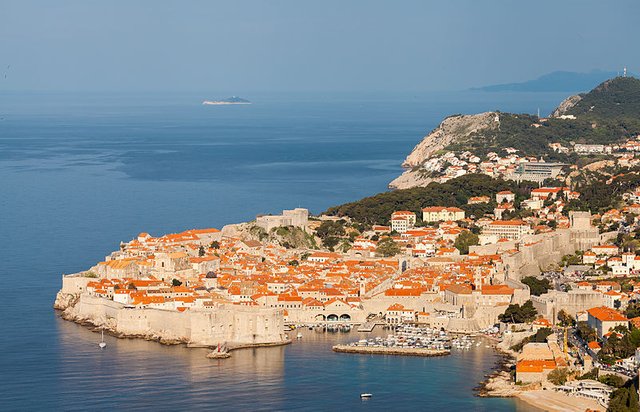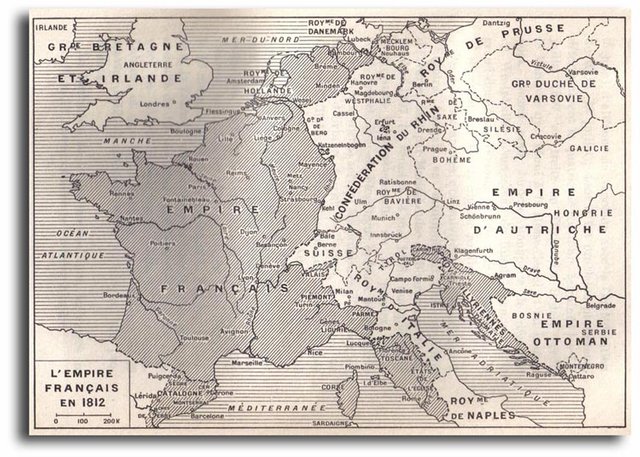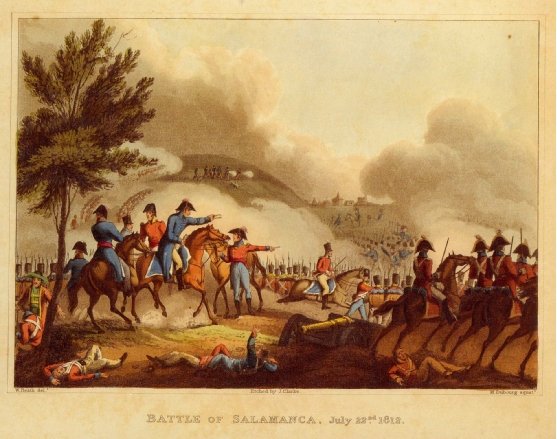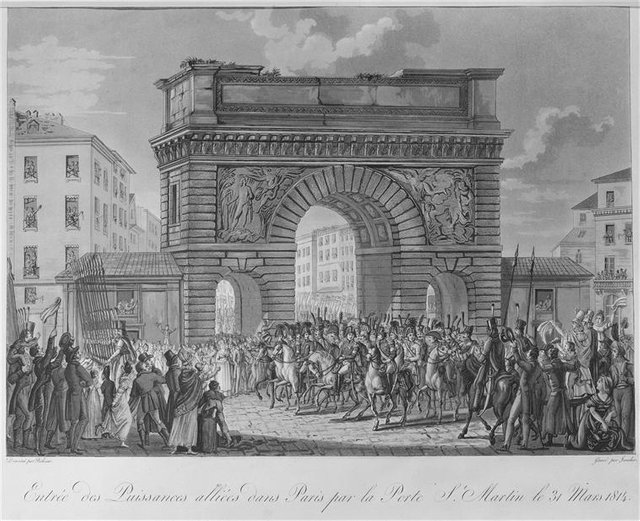GENERALS OF NAPOLEON (22) - MARMONT - “The back stabber”
He was the most mediocre of generals; I supported him, defended him against all because I thought he had honour - Napoleon.

Napoleon does not have strong enough words for any other of his generals, and to this day Marmont is like a synonym for traitor. Marmont almost singlehandedly brought Napoleon down in 1813 by negotiating with the Allies under the walls of Paris. An infuriating treason for a man who owed basically everything he had from the man who considered him a friend.
Auguste-Frederic-Louis Viesse de Marmont was born in 1774. Son of a minor noble, his father’s connections bag him a place in an reserve artillery regiment at the age of 15 and in August 1792, he gets his artillery diploma from the school of Châlons.
Affected in 1793 to the Army of the Alps, he is dispatched with his artillery platoon to the siege of Toulon, where he meets Bonaparte and will follow him in Italy (where he distinguishes himself at the battles of Lodi and Rivoli), in Egypt (taking over Malta in the process) and eventually will be in charge of rallying the artillery officers during the coup of 18 Brumaire.
During the Consulate, Marmont is in command of the Army of Holland. Very disappointed not to be on the first list of Marshalls, he takes part from the periphery to the campaign of 1805 and his unic contribution about Austerlitz is to commemorate it in Holland by building a pyramid, still visible today, around which has grown a village called Austerlitz.

The "Marmontberg" build by Marmont's soldiers to commemorate the victory of Austerlitz, in Holland.
In the aftermath, he is sent to Dalmatia to oust the Russian troops threatening the town of Ragusa and will rule the area efficiently from 1806 to 1809, earning the title of Duke of Ragusa.

Dubrovnik in nowadays Croatia, formerly known as Ragusa.
When the war with Austria starts again, Marmont’s troops are kept in reserve at Wagram. However, two months later, he manages to stand his ground against a numerically superior Austrian army at the battle of Znaïm, forcing the Austrians to demand an armistice and allowing at last Napoleon to give to his friend the long coveted title of Marshall.
The following treaty amputates Illyria from the Austrian empire. Marmont will run this new outpost of France like “a vice-roy whose powers are unlimited” (in his own words), building roads, fostering trades, collecting the custom taxes, and living a life of pleasure and honours.

Map of the French empire, with the Illyrian provinces in the lower-left corner.
But the easy life comes to an end in 1811, when he is sent to Spain. There, his relations with the King Joseph turn sour very quickly, and the misunderstanding will cost dearly to both at the battle of Salamanca (July 1812). In the ensuing panic, Joseph must temporarily abandon Madrid. Marmont, seriously injured during the battle, is evacuated to Bayonne will stay in bed until november 1812. Thanks to the disaster of the Russian campaign, his management at the battle of Salamanca is quickly forgotten and forgiven by Napoleon who has other more pressing concerns.

The campaign of Germany will be a terrible experience for Marmont. If at first his troops take part honourably to the victories and Lutzen and Bautsen and manage to stand their ground long enough at Leipzig to save the French army from total annihilation, he has the odious surprise to see some of his German troops join the Allies (October 1813). In the retreat towards France, a typhus epidemic kills 15.000 of his men.
In the Campaign of France (1814), Marmont fights doggedly against the Allies but must retreat as far as Paris. Disheartened and not wanting to let the Allies loot the capital, he signs an armistice with the allies to evacuate the city and joins Napoleon troops. At this moment, Napoleon thinks that he can sign the peace with the Allies and keep his throne. But meanwhile in Paris, the Allies have pushed the French elite to proclaim the destitution of the Emperor and the restauration of the Bourbons (April 2nd 1814). Napoleon swears to fight until the bitter end and this is when Marmont opens negotiations with the Allies to deliver his own troops to the enemy.

Entrance of the Allies in Paris in March 1814.
The forfeiture of Marmont definitely tips the balance in favour of the Allies: now convinced that the Emperor has lost control over his own army, they refuse even to consider a regency in the name of the Emperor’s son. The own troops of Marmont rebel when they learn that they have to disarm but Marmont eventually manages to control them.
During the Restauration, Marmont is showered with honours by the Bourbons, but despised publicly for his treason. During the Hundred Days, Napoleon strikes him from the list of his Marshalls. Marmont joins the king Louis XVIII in Belgium and comes back with him after Waterloo, cementing his royalist credentials. Worse: he is among the few to vote in favour of the execution of the Marshall Ney, who rallied Napoleon’s cause.
The later years of Marmont are marked by his ruin. He must beg the Austrians to grant him his dotations from his title of Duke of Ragusa, but even with that he is forced to declare bankruptcy. Finally, in 1830, the Bourbons are toppled by another revolution which brings the Orleans branch to the throne. Marmont is unable to stop it and must flee to exile in England.
He will spend the next 20 years out of France, travelling between England, Holland, Austria and as far as Persia, writing his memoirs in order to justify his behaviour, but only managing to rekindle the heated argument about his behaviour during these days in April 1814 where he basically handed over his troops to the enemy.
He dies in Venice in 1852.
Sources:
https://fr.wikipedia.org/wiki/Auguste-Fr%C3%A9d%C3%A9ric-Louis_Viesse_de_Marmont
nice article. I never knew why marmont sounded like betrayal until now. Thanks